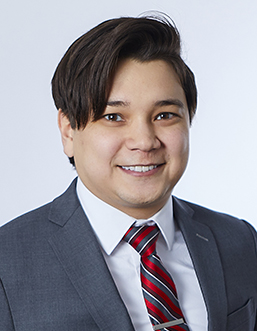First they came for cable TV, then they came for the 9-to-5 workday. Now, promptly after a nutritious breakfast of avocado toast, millennials are lining up Monday mornings at Court houses to invade jury pools in increasing numbers. Though keeping younger jurors out of the final jury lineup was previously a simpler task due to the smaller number of eligible millennials, individuals born between 1981 and 1996 are now all adults and are regularly receiving jury duty notices. Millennials are now the largest living generation, recently surpassing the baby boomers. Defense attorneys must adapt and change their jury trial tactics in order to account for this change in the makeup of the jury pool, and to account for the changing strategies of opposing counsel. In order to do that, defense attorneys must understand these young jurors and how they operate.
Critics of millennials describe the generation as lazy, entitled and soft. Those who actually understand millennials instead describe them as innovative, ambitious and sympathetic. Divisiveness aside, looking objectively at the popular characteristics of millennials is the key to unlocking their full potential as jurors.
Dangers of Innovative Ambition
Millennials are famously known for learning the current process of performing a task, and then immediately setting out to modify the manner in which the task is performed in an effort to increase efficiency. Depending on your viewpoint, this shows innovation and ambition, or laziness and entitlement. Either way, these characteristics are fundamentally hazardous to a defense attorney’s case in a long-term care matter. Millennial jurors will grasp onto the concept of how normal tasks are performed or how residents are monitored. However, hearing opposing counsel’s version of how a resident should be monitored may appear on its face as a quicker and better way of taking care of residents; i.e., catnip to millennials. Defense attorneys must be quick to point at the policy and fundamental flaws in those types of arguments to explain to millennials why opposing counsel’s theories fail. Even though plaintiff attorneys will go first, defense attorneys will still have plenty of time and room to persuade jurors to side with the defense position.
Millennials are self-trained in absorbing vast amounts of fact snippets in short periods of time. This training comes from scrolling through social media, news apps and dating by swiping. Defense attorneys will find that millennial jurors are actually quite attentive, as long as you are not dragging out a long story or explanation. In short, make every word count. Do not waste time with superfluous wording, but get to the point and repeat it if necessary in short sound bites. Of course, the fatal argument that the defense can make is “this is how we’ve always done it” and “it has worked for others in the past.” At all cost, avoid such arguments if you so happen to keep those in your arsenal.
Desire To Change the World Gives New Strength To Reptile Theory
Though the job-hopping trend seems to be slowing down, millennials are still known for leaving a high paying job for a lesser-paying job in which they feel like they are making a difference in the world. They inherently have the desire to make a different and leave the world a better place. While this is a great mindset generally, it is ripe for the picking for plaintiff attorneys ready to flex their reptile theory muscles.
Reptile theory is used by plaintiff attorneys to speak to the primitive part of jurors’ brains focusing on the fundamental concept of favoring safety and survival. Telling a bleeding-heart millennial that he or she has the power to save future residents from a similar fate is like asking if that juror would like his or her student loans to be forgiven in full. Defense attorneys must brush up on anti-reptile tactics in order to prepare for this danger.
Millennials are a curious type of human in that they thrive on conspiracies, but will also investigate and pick apart stories. In essence, they want to hear what stories and possibilities are out there, but are prepared to not believe a single word you say. Defense attorneys should be prepared to set forth their arguments and version of events quickly, succinctly and with proper evidence as backup so as to properly appeal to the millennial juror’s mind.
In conclusion, just like a juror of any age, a millennial juror can prove to be helpful or harmful to long-term care cases depending on how that juror is handled by the defense attorney. Further, as any good attorney should know, a variety of other factors should be considered of a juror other than his or her age. The number of millennial jurors will continue to increase in jury pools, so strategies should be worked out now to increase the odds of defense verdicts. These jurors will want you to lead and present them with the information they need to make the right decision, but don’t worry – they won’t ask for a participation trophy at the end of trial.
